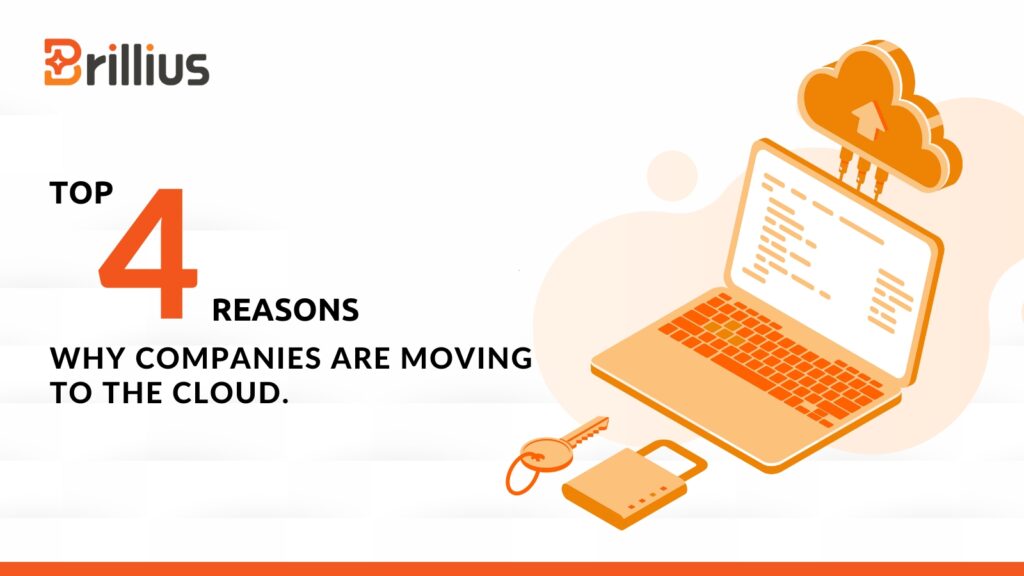As technology continues to advance, companies are continually looking for ways to improve their operations and stay competitive. One of the most significant trends in recent years has been the migration of businesses to cloud. This article will explore the top four reasons why companies are moving to the cloud, including availability, flexibility & scalability, reduced responsibility and reduced cost.

Availability
One of the primary reasons why companies are moving to the cloud is the availability of resources. In the past, businesses had to invest heavily in IT infrastructure, including servers and storage, to ensure that their applications and data were available at all times. This approach was not only expensive but also required a significant amount of time and resources to maintain and manage. With the cloud, businesses can take advantage of the infrastructure and services provided by cloud providers like Amazon Web Services (AWS), Microsoft Azure, and Google Cloud Platform. These providers offer highly available and reliable infrastructure that is scalable and can be customized to meet the needs of any business.
Flexibility and Scalability
Another key reason why companies are moving to the cloud is the flexibility and scalability it provides. Cloud computing allows businesses to quickly scale up or down their IT resources based on their needs. For example, if a company experiences a sudden surge in traffic to their website, they can quickly increase their server capacity to handle the increased load.
Additionally, cloud providers offer a wide range of services that businesses can take advantages of databases, analytics, and artificial intelligence. These services can be easily integrated into a company’s existing IT infrastructure, providing businesses with greater flexibility and scalability.
Reduced Responsibility
Another significant advantage of moving to the cloud is reduced responsibility. In the past, businesses had to manage and maintain their IT infrastructure, including servers, storage, and networks. This approach was not only time-consuming, but it also required a significant amount of expertise. With the cloud, businesses can reduce their IT responsibilities significantly. Cloud providers handle the maintenance and management of the infrastructure, including hardware upgrades, security, and backups. This frees up businesses to focus on their core operations and allows them to take advantage of the expertise of cloud providers.
Reduced Cost
Cost reduction is another significant driver for companies to move to the cloud. In the past, businesses had to invest heavily in hardware, software, and maintenance to ensure that their IT infrastructure was up to date and available. This approach was not only expensive, but it also required a significant amount of time and resources to manage. With cloud migration, businesses can reduce their IT costs significantly. Cloud providers offer a pay-as-you-go pricing model, which means that businesses only pay for the resources they use. Additionally, cloud providers handle the maintenance and management of the IT infrastructure, freeing up businesses to focus on their core operations.
Conclusion
Cloud computing has transformed the way businesses operate, providing them with greater availability, flexibility, scalability, reduced responsibility, and reduced cost. These benefits have made the cloud an attractive option for businesses of all sizes and industries. As technology continues to evolve, we can expect cloud migration to continue to play a significant role in the digital transformation of businesses worldwide.
Brillius team is ready to assist your organization in deploying a Cloud Transformation strategy tailored to meet your organization’s specific requirements from initial planning to ongoing support.